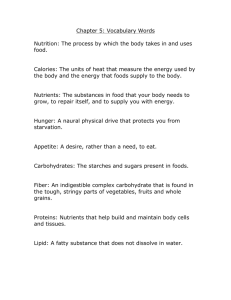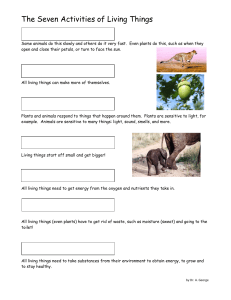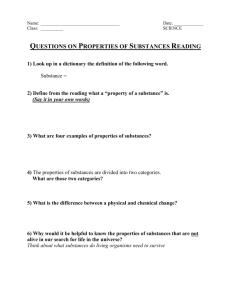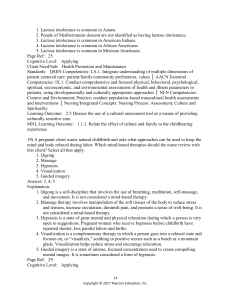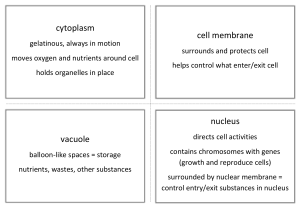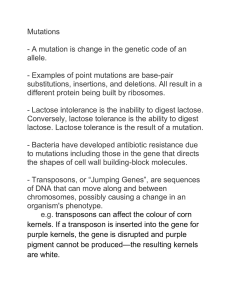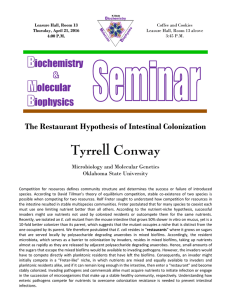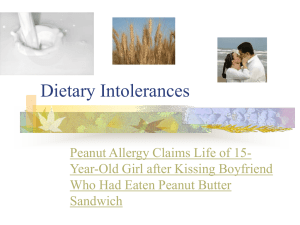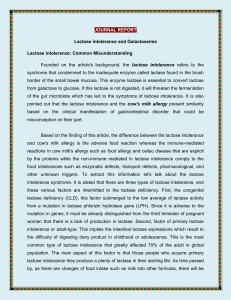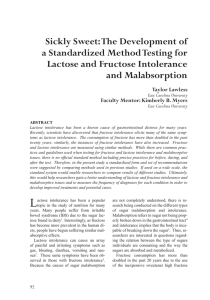Chapter 10 Vocabulary Nutrition – the process by which your body
advertisement
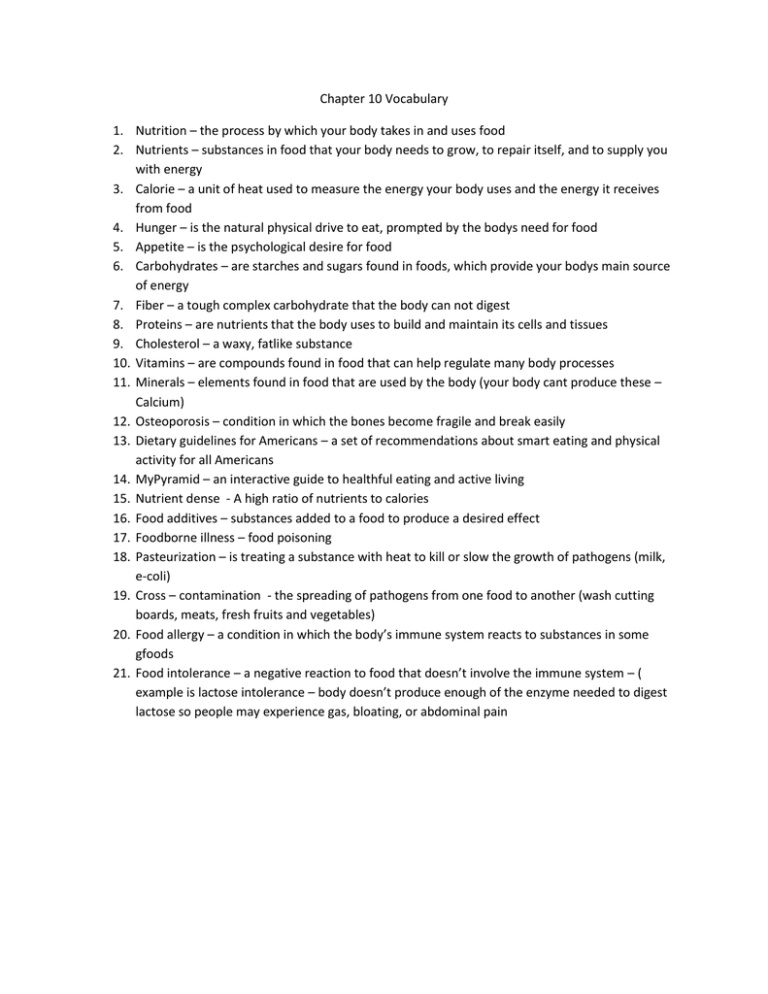
Chapter 10 Vocabulary 1. Nutrition – the process by which your body takes in and uses food 2. Nutrients – substances in food that your body needs to grow, to repair itself, and to supply you with energy 3. Calorie – a unit of heat used to measure the energy your body uses and the energy it receives from food 4. Hunger – is the natural physical drive to eat, prompted by the bodys need for food 5. Appetite – is the psychological desire for food 6. Carbohydrates – are starches and sugars found in foods, which provide your bodys main source of energy 7. Fiber – a tough complex carbohydrate that the body can not digest 8. Proteins – are nutrients that the body uses to build and maintain its cells and tissues 9. Cholesterol – a waxy, fatlike substance 10. Vitamins – are compounds found in food that can help regulate many body processes 11. Minerals – elements found in food that are used by the body (your body cant produce these – Calcium) 12. Osteoporosis – condition in which the bones become fragile and break easily 13. Dietary guidelines for Americans – a set of recommendations about smart eating and physical activity for all Americans 14. MyPyramid – an interactive guide to healthful eating and active living 15. Nutrient dense - A high ratio of nutrients to calories 16. Food additives – substances added to a food to produce a desired effect 17. Foodborne illness – food poisoning 18. Pasteurization – is treating a substance with heat to kill or slow the growth of pathogens (milk, e-coli) 19. Cross – contamination - the spreading of pathogens from one food to another (wash cutting boards, meats, fresh fruits and vegetables) 20. Food allergy – a condition in which the body’s immune system reacts to substances in some gfoods 21. Food intolerance – a negative reaction to food that doesn’t involve the immune system – ( example is lactose intolerance – body doesn’t produce enough of the enzyme needed to digest lactose so people may experience gas, bloating, or abdominal pain
